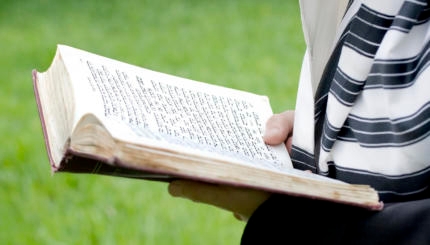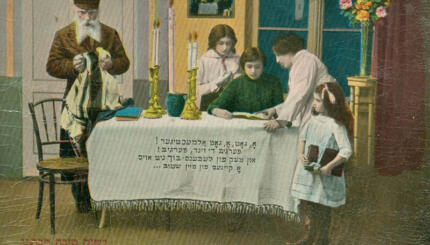Rosh Hashanah celebrates the Jewish new year, and like the secular new year, the most common greeting for the holiday is “Happy New Year.”
Jews will often greet one another on the holiday with the rough Hebrew equivalent, shana tovah (pronounced shah-NAH toe-VAH), which literally means “good year.”
Shana tovah is actually a shortened version of a longer greeting: L’shana tovah u’metukah (pronounced l’shah-NAH toe-VAH ooh-meh-too-KAH), which literally means “for a good and sweet year.” But when greeting people in person, the shorter version is more common. And like the secular new years greeting, shana tovah is often used in the days preceding and following Rosh Hashanah, as well as on the holiday itself.
Sephardic and Mizrahi Jews often greet one another with tizku l’shaneem rabot (pronounced teez-KOO le-shah-NEEM rah-BOAT) which means “may you merit many years.” The proper response for a male is tizkeh v’tihyeh ve’orech yamim (teez-KEH v’tee-h’YEH v’OAR-ekh yah-MEEM) and the female version of this response is tizkee vetihyee ve’orekh yamim (teez-KEE v’tee-h’YEE v’OAR-ekh yah-MEEM), both of them meaning “May you merit life—long life!”

Help us keep Jewish knowledge accessible to millions of people around the world.
Your donation to My Jewish Learning fuels endless journeys of Jewish discovery. With your help, My Jewish Learning can continue to provide nonstop opportunities for learning, connection and growth.
In Persian Jewish communities, moadim shalom (“peaceful holiday”) is met with sad sal be salhaye khob (“may you reach 100 good years”). Persian Jews also use the expression sale no mobarak (“happy new year”) for both the Jewish New Year, the secular New Year on January 1st, and the Persian New Year, Nowruz. In the Neo-Aramaic dialect of the Jews of northwestern Iran (Sanandaj and Urmia), shatakhun brikhta hawya (“happy new year”) and ‘ela brikhula or elchun brikha haw (“happy holiday”) are what Jews use to wish each other a happy Jewish new year. In the Urmian Neo-Aramaic of Northwestern Iran, Jews also say rabba shanne shate matetun — “may you arrive at many years.”
Other generic Jewish holiday greetings are also used on Rosh Hashanah. These include chag sameach (pronounced chahg sah-MAY-ach), which literally means “happy holiday.” And if you meet someone on Rosh Hashanah itself, you might say gut yontiff (pronounced goot YUHN-tiff). Yontiff is a yiddishized version of the Hebrew phrase yom tov, which literally means “good day” and refers to any major Jewish holiday on which work is traditionally forbidden.
Curious to know about other Jewish greetings?




